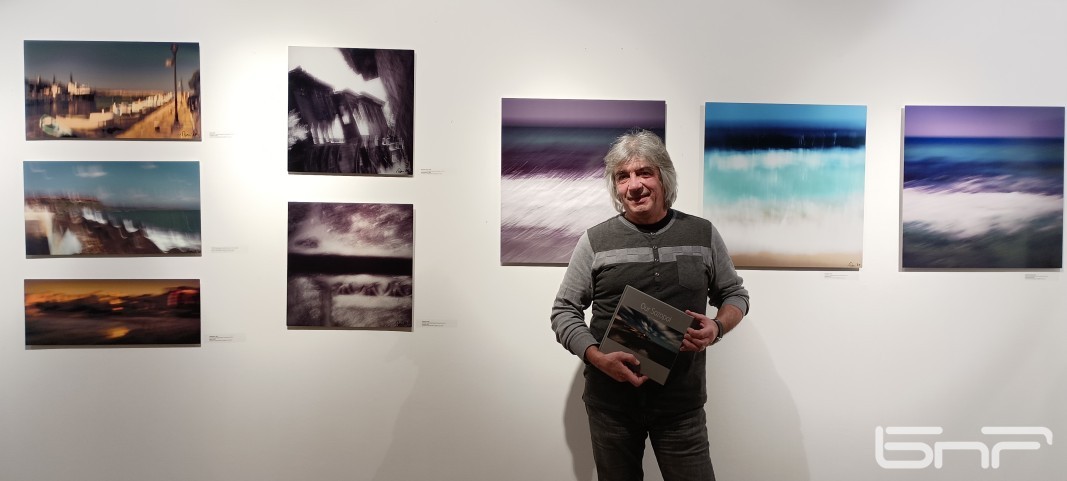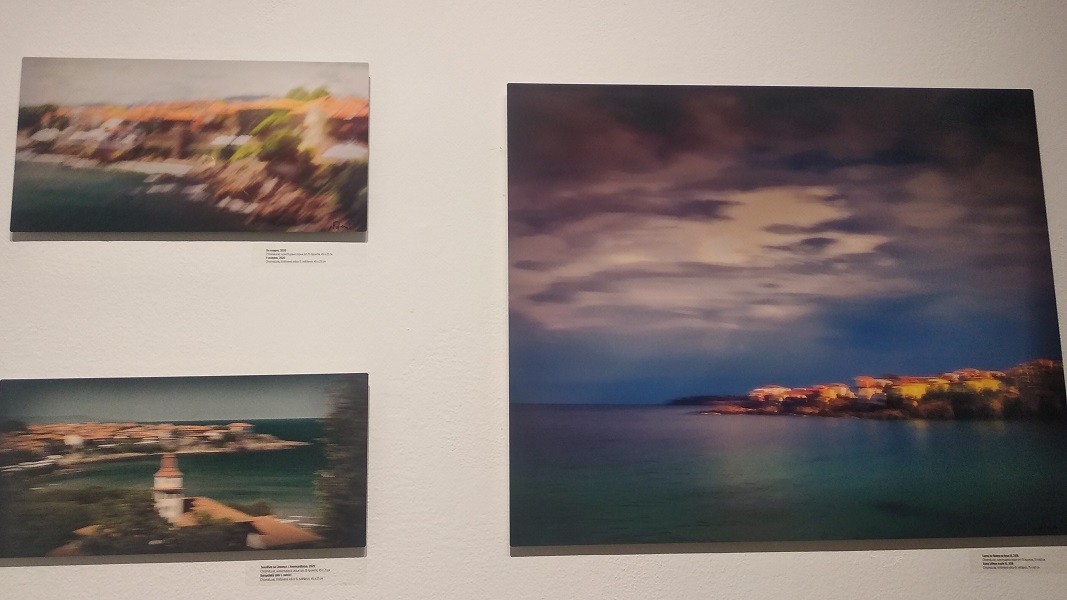Sozopol, the small town on the Black Sea, with its old wooden houses and narrow cobblestone streets leading straight to the seashore has been an inspiration for talented Bulgarian cameraman and photographer Asen Shopov, better known professionally in Prague than he is in Sofia where he was born. Asen Shopov, who has been living in Prague for 40 years, returned recently to the country of his birth at the invitation of the Czech Centre in Sofia which is hosting a fine-art photography exhibition of his works.
Talking about his photographs from Sozopol, Asen Shopov says: “Here, as nowhere else I feel an intimate harmony and I am gradually filled with an inspiration for new plans, new dreams… The town embraces me with its thousand-year-old mysteries, and the fact it is so close to the sea is a reminder of eternity. Sozopol has many, many faces.”
Asen Shopov left for Czechia after his military service in 1984 when he decided to continue his education at the Film and TV School of the Academy of Performing Arts FAMU in Prague, where he is now associate professor for film and TV art, photography and new media. He has worked on a number of popular film, TV and advertising projects. He is, without any doubt, one of the prominent names among cameramen in Czechia, with his highest reward being an Oscar nomination for best international feature film for 2004 for a movie Shopov was involved in –Zelary (Czechia, Austria, Slovakia).

The exhibition “Our Sozopol”, which Asen Shopov is showing in Bulgaria demonstrates the way he tries to avoid a documentary vision of the locations by lending them an unorthodox, even impressionistic quality. But therein lies the charm of art – that it is capable of surprising and provoking audiences. “It is not my first exhibition, the first one was at the Students’ House in Sofia when I was 17. It consisted of black-and-white photographs, I was only just getting the hang of photography,” Asen Shopov says and adds:
“Even though it served as a first step towards cinematography, my love of photography has not gone away, though I try to keep the two separate - cinematography and photography – as they are as similar as they are different. I am fond of Prague, it is a wonderful city, but I am also in love with Sozopol and with Bulgaria. Though I have not lived in Bulgaria for 40 years I still feel I am Bulgarian, proof of which is this exhibition which is dedicated to Sozopol, and my own feelings for the town.
Sozopol is my favourite place, I have been going there since I was a child with my parents, with my brother. I have been taking pictures of Sozopol for as long as I can remember, but back then, in 2020, because of the pandemic, though it was summer, there were practically no tourists. That is what inspired me, so I got down to work and started taking photographs. The place I love best of all is the old part of the town, and especially the Assumption church which is from the 15th century. It is almost entirely dug into the ground because of the rules that existed at the time within the bounds of the Ottoman Empire. But I must admit that documentary work is not my thing as a photographer or as a cameraman, I prefer stylized things, when an atmosphere is moulded through light, setting, camera motion. Things that are staged rather than a copy of reality. That is my brand professionally. Otherwise there is a very vibrant documentary school in Czechia.”
What helped Asen Shopov achieve success in a foreign land was the communication with the people there, with his colleagues. He learnt the Czech language in the early stages of his studies in Czechia, and that helped him feel at home there and get accepted:

“I don’t think there is such a big difference between us and the Czechs. It is true that before the democratic changes they tended to snub Bulgaria and the entire Balkan region even though they would still spend their summer holidays at the Bulgarian seaside. But now we are all members of the EU so I can’t see any significant differences in our mind-set. Of course, we are more temperamental, more emotional because we are a southern nation, and they are a bit more restrained. What I would like to see in our society is more exactitude and more personal discipline on the job. That is something we don’t have. What annoys me when I come back here are the dirty streets for example, but I must admit that since the last time I was here in 2020, the year in which most of the photographs were taken, things in Bulgaria have changed quite a bit, and for the better. I can see the facades of many buildings in Sofia have been fixed, and that makes me happy.”
Photos: Gergana Mahcneva, Slavena Ilieva
De Là Trâp - this sonorous name attracted the attention of hip-hop culture fans in Bulgaria this year. For just two months, the joint project "333" with famous rapper 100 KILA collected nearly 1 million views on one of the video..
From the noisy kitchens of London restaurants with Michelin stars to a village hidden in the forests of the Rhodope Mountains, Petko Sharankov's path is full of twists and turns. After living for many years in the British capital where he mastered the..
As the BNR’s initiative “Awakener (enlightener) of the year 2024” enters its last stage, we present one of the most active volunteers from the Bulgarian community in Chicago, the US. Her name is Zhechka Geshovska, she was born in Dimitrovgrad in..

+359 2 9336 661
